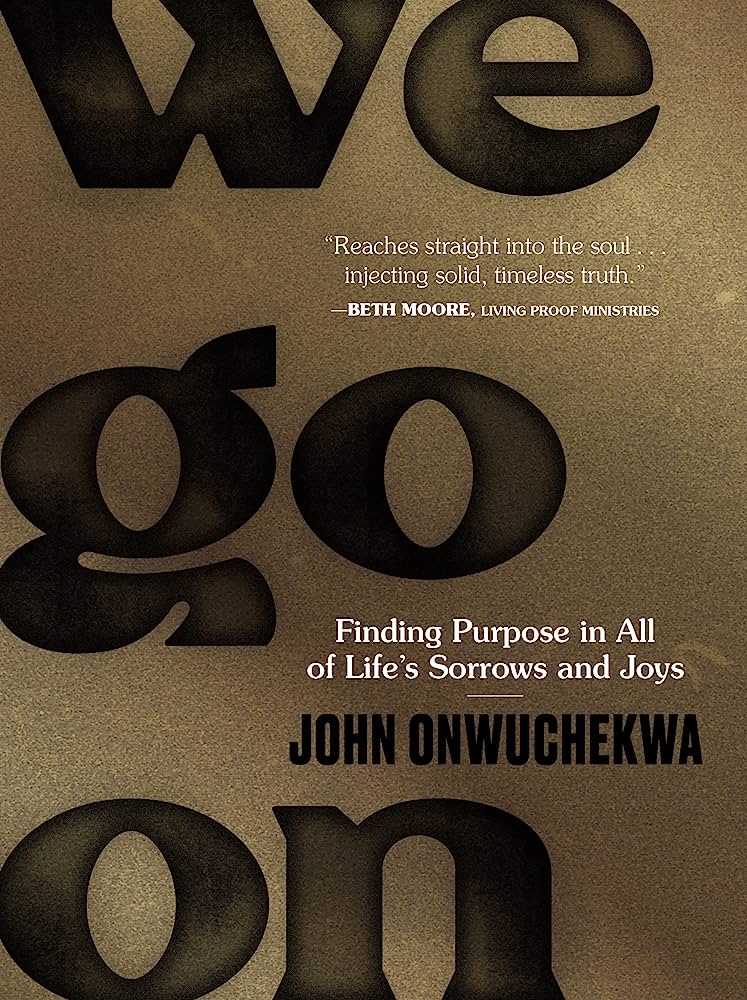The bible does not directly mention rap music. However, as a form of art, rap music can be evaluated in light of biblical principles.
When listening to rap music, it is important to consider the lyrics and whether they align with biblical values such as honesty, respect, and love for others. As with any form of media or entertainment, it is important to guard our hearts and minds and ensure that what we consume does not lead us away from god.
Additionally, christians should be mindful of the impact that their own music and lyrics may have on others and strive to create music that is positive and uplifting. Ultimately, the bible instructs us to glorify god in everything we do, including the music we listen to and create.

Credit: www.amazon.com
Where Did Rap Music Come From?
Rap music has exploded in popularity over the past few decades, with its unique style and compelling lyrics captivating audiences around the world. But where did this genre of music actually come from? Let’s take a closer look at its history and evolution.
A Brief History Of Rap Music
- Rap music originated in african american communities in the united states during the 1960s and 1970s.
- It began as a form of expression for those who felt marginalized and oppressed, with artists using it as a means to tell their stories and express their struggles.
- The first official rap song is widely considered to be “rapper’s delight” by the sugarhill gang, released in 1979.
- Throughout the 1980s, rap music flourished and became a mainstream genre, with artists such as run-dmc, ll cool j, and public enemy gaining huge popularity.
- In the 1990s, gangsta rap emerged as a subgenre, with artists such as n.w.a., tupac, and notorious b.i.g. Becoming household names.
- Over the past couple of decades, rap music has continued to evolve, with artists like eminem, kendrick lamar, and cardi b pushing the genre in new and exciting directions.
How The Genre Has Evolved Over Time
- The early days of rap music were characterized by simple beats and catchy rhymes, often focusing on party and dance themes.
- Throughout the 1980s, rap music became more socially conscious, with artists using their music to address issues such as poverty, discrimination, and police brutality.
- The 1990s saw the rise of gangsta rap, which focused on themes of violence, crime, and life in the inner city.
- In the 2000s, rap music became more diverse, with artists experimenting with different sounds and styles, and incorporating elements of rock, pop, and electronic music.
- Today, rap music continues to evolve, with artists tackling a wide range of subjects, including mental health, social justice, and identity politics.
Rap music has a rich and fascinating history, and has evolved in countless ways over the years. From its humble beginnings in african american communities to its position as one of the most popular genres in the world today, rap music remains a compelling and powerful form of expression.
The Controversies Surrounding Rap Music
Rap music has always been a topic of debate in many societies. While some consider it a form of poetry, others consider it a negative influence on the youth. Here are some social and cultural criticisms and questions about content and lyrics that people often associate with rap music.
Social And Cultural Criticisms
Rap music is often accused of promoting violence, drug use, and gang culture. However, defenders argue that rap music is a reflection of contemporary urban life and should be seen as a means of expression for marginalized communities. Here are some key points to consider:
- Rap battles and lyrical confrontations are used by many as a tool to resolve conflicts without resorting to violence.
- Rap music often discusses sensitive topics such as police brutality, poverty, and racism, which are often ignored or suppressed in mainstream media.
- Rap music has contributed to the evolution of hip-hop culture, which incorporates art, dance, fashion, and language. Many see it as a means of empowerment for young people from disadvantaged backgrounds.
Questions About Content And Lyrics
While some rap music contains positive messages and inspiration, others can be explicit, vulgar, and demeaning toward women. Here are some questions that people often ask:
- What kind of messages are rap artists promoting, and what impact do they have on their audiences?
- Are rappers responsible for their content and can they influence their fans’ behavior?
- Should explicit language and violent content be censored, or is it a violation of free speech?
- Is rap music being commercialized for profit at the expense of cultural authenticity and integrity?
The debate over rap music will continue as long as it remains a significant part of popular culture. While it is important to acknowledge the criticisms and questions surrounding it, we should also appreciate its artistic value and potential to effect social change.
Understanding The Bible’S Stance On Music
Music is an essential part of our lives, and it has been around since the beginning of time. Different cultures and religions have their unique ways of expressing themselves through music. As christians, it’s essential to look at what the bible says about music to determine what is acceptable in the eyes of god.
Here are some key points to keep in mind when it comes to understanding the bible’s stance on music:
The Role Of Music In Worship And Praise
Music has always played a significant role in worship and praise in the bible. Here are some examples:
- In ex. 15: 1-21, moses and the israelites sang a song of praise to god after he parted the red sea.
- In 1 chron. 6: 31-32, king david ordered the levites to sing and play instruments in the presence of the ark of the covenant.
- In ps. 150, the psalmist encourages us to praise god with every instrument imaginable.
Examples Of Biblical Music
The bible provides examples of different types of music used in worship. Here are a few examples:
- Psalms and hymns: The book of psalms contains a collection of songs that were used in worship during old testament times. Many of these songs were sung in the temple and were accompanied by various instruments.
- Spiritual songs: These songs are typically used to convey a specific message or teaching. They are often sung in a call-and-response style and use repetition to emphasize a particular point.
- Instrumental music: Instrumental music has been a part of worship throughout history. In 1 sam. 16:23, king saul was soothed by david’s harp-playing when the evil spirit tormented him.
As christians, we must remember that music, like all things, should be used to glorify god. When we use music to worship and praise god, he is honored, and our spirits are lifted. We must be mindful of the lyrics we sing and the message it conveys, as well as the manner in which we perform and use our instruments.
Let us use music as a tool to bring glory to his name.
What Does The Bible Say About Rap Music? Uncovering The Truth
What does the bible say about rap music? Uncovering the truth
Rap music has long been a topic of controversy, with some christians claiming that it promotes sinful behaviour and goes against the teachings of the bible. However, others argue that it is a legitimate form of self-expression, and that its lyrics can actually be uplifting and inspiring.
So, what does the bible say about rap music? Let’s take a closer look at the issue.
Bible Verses That Can Be Interpreted As Relevant To Rap Music
- Ecclesiastes 3: 1-4 – “there is a time for everything, and a season for every activity under the heavens: a time to be born and a time to die, a time to plant and a time to uproot, a time to kill and a time to heal, a time to tear down and a time to build.”
- Ephesians 5: 19 – “speak to one another with psalms, hymns, and songs from the spirit. Sing and make music from your heart to the lord”
- Proverbs 25: 11 – “a word fitly spoken is like apples of gold in a setting of silver.”
- Psalm 150: 1-6 – “praise the lord. Praise god in his sanctuary; praise him in his mighty heavens. Praise him for his acts of power; praise him for his surpassing greatness. Praise him with the sounding of the trumpet, praise him with the harp and lyre, praise him with timbrel and dancing, praise him with the strings and pipe, praise him with the clash of cymbals, praise him with resounding cymbals.”
These verses suggest that there is a time and place for everything, including music. They also encourage the use of music as a form of worship and expression.
Examining The Language And Sentiments Commonly Found In Rap Lyrics
- Many rap lyrics contain explicit language and themes such as violence, drugs, and sex.
- However, there are also many examples of rap songs that promote positivity, social justice, and faith.
- It is important to separate the negative elements of rap music and appreciate the positive messages that can be found within it.
- As with all forms of media, it is up to the individual to discern what is appropriate for them and what is not.
The bible does not specifically address the issue of rap music. However, it does provide guidance on the use of music as a form of worship and expression. It is up to each individual to determine what is appropriate for them, and to use discernment when consuming media, including rap music.
The Various Themes In Rap Music
Rap music is a genre that has been around since the late 1970s and has been a subject of controversy for decades. Some people believe that rap music promotes violence and other negative behaviors, while others view it as a form of expression that addresses various issues.
With that being said, what does the bible say about rap music? Let’s take a closer look at the various themes in rap music and how they align with biblical teachings.
Societal Issues
Rap music is known for its strong and often controversial commentary on societal issues. Some of the most common themes in this genre include police brutality, racism, poverty, and inequality. The bible calls on us to love our neighbors as ourselves (mark 12:31) and to seek justice for the oppressed (isaiah 1:17).
Therefore, many of the messages conveyed in rap music align with biblical principles.
- Police brutality: Unfortunately, instances of police brutality continue to occur in our world today. Many rap songs address this problem and call for change.
- Racism: Racism is a sin and goes against everything that the bible teaches us about loving one another.
- Poverty and inequality: The bible teaches us to care for the poor and less fortunate. Many rappers use their music to shine a light on these issues and raise awareness.
Relationships And Love
Rap music is not solely focused on societal issues – it also often explores themes such as relationships and love. However, the way in which these themes are addressed in rap music may not always align with biblical teachings.
- Casual sex: Some rap songs may promote casual sex, which goes against biblical teachings on sex outside of marriage.
- Objectification of women: Objectification of women is also a common theme in rap music and goes against the biblical teaching of valuing and respecting all people.
Personal Struggles And Challenges
Many rappers use their music to discuss their personal struggles and challenges. While some of these themes may be difficult to listen to, they often include important messages.
- Mental health: Many rappers have been open about their struggles with mental health. This is an important issue to address, as the bible teaches us to care for the whole person – including our mental health.
- Substance abuse: Substance abuse is a common theme in rap music. However, as christians, we are called to care for our bodies and avoid any behaviors that can harm them.
Materialism And Wealth
Rap music is often associated with materialism and wealth. While it is not inherently sinful to be wealthy or enjoy material possessions, the bible warns against putting too much value on these things.
- Loving money: The bible warns against loving money more than god (1 timothy 6:10). Materialism and wealth should never take the place of our relationship with god.
The Sacred
While rap music is often associated with secular themes, there are many christian rappers who use their music to praise god and share their faith with others. The sacred themes in rap music align with biblical teachings and encourage listeners to grow in their faith.
- Praising god: Many christian rappers use their music to praise and worship god. This is a positive way to use the art of rap music to glorify god.
- Sharing the gospel: Christian rappers also use their music as a form of evangelism, sharing the gospel message with those who may not have heard it before.
Rap music can touch on a variety of themes, some of which align with biblical teachings. While there are some messages in rap music that may not align with the bible, it is important to approach the genre with an open mind and discernment.
Ultimately, it is up to each individual to decide what music they listen to and how they interpret the messages conveyed in that music.
Examining The Positive And Negative Messages In Rap Music
Rap music, while considered a highly controversial genre by some, has gained mainstream acceptance in recent years. Many argue that it’s because it reflects the realities of the world today, including issues like poverty, racism, police brutality, and more. However, it also touches on some problematic elements, like misogyny, violent imagery, and narcissism.
In this post, we’ll take a closer look at both sides.
Empowerment And Advocacy
While some rap songs contain negative themes, many others reflect issues of empowerment, hope, and advocacy. Examples include:
- “alright” by kendrick lamar, which discusses racial injustices and encourages people to keep going despite the difficulties.
- “formation” by beyoncé, which addresses the issue of police brutality against african american people.
- “same love” by macklemore & ryan lewis, which advocates for gay rights and same-sex marriage.
All these songs and many others like them send powerful messages that help listeners feel empowered to bring positive changes in society.
Misogyny And Violent Imagery
Unfortunately, some rap music contains misogynistic and violent imagery, which can have a significant impact on listeners. These themes can often be present in the following ways:
- Lyrics that objectify women, often using degrading and derogatory language and references to violence.
- Imagery and themes that glorify guns, drugs, and violence, which can be harmful and worrisome for younger listeners.
Though these themes are present in some rap songs, it’s important to note that not all rappers promote these ideas through their music.
Narcissism
Narcissism is another problematic theme that’s present in some rap music. Rappers often boast about their wealth, material possessions, and status, which can be detrimental to younger listeners. This music can promote unhealthy mindsets such as:
- The belief that success is only measured by wealth and material possessions.
- The need to objectify and dominate others in order to be successful.
It’s important to note that these themes aren’t present in all rap music, and not all rappers promote these attitudes.
Rap music can have both positive and negative messages, just like any other genre of music. However, it’s crucial to have a critical eye when analyzing rap lyrics, particularly for younger listeners who may be more susceptible to the themes presented.
We need more successful rappers to incorporate more positive and uplifting messages, particularly the ones that actively advocate for social justice and empowerment.
A Review Of Christian Rap Music
Rap music has been a controversial topic among christians for many years. Some argue that it promotes violence, drugs, and sexual immorality. However, there is a growing movement of christian rap music artists who use the genre to spread their religious beliefs while staying true to the art form.
In this blog post, we will explore the history and impact of christian rap music, as well as how it differs from mainstream rap music.
Brief History And Impact Of Christian Rap
Christian rap emerged in the 1980s with the intention of spreading the gospel through hip-hop music. It was initially met with resistance in the christian community, as many believed that rap was a secular genre that promoted immoral behavior. However, as more christian rap artists emerged, the genre gained popularity and acceptance.
One of the most influential christian rap artists is lecrae. He started his career as a secular rapper but eventually converted to christianity and began to infuse his music with religious themes. He has won several grammy awards for best gospel album and has been recognized as one of the top christian rap artists in the industry.
The impact of christian rap has been significant in the african american community. Many young people have been drawn to the genre because it speaks to their experiences while also promoting positive messages. Christian rap has been used as a tool to address issues such as gang violence, drug addiction, and poverty.
How Christian Rap Differs From Mainstream Rap
There are several key differences between christian rap and mainstream rap. These differences include:
- Message: Christian rap promotes positive messages that align with christian values, such as faith, hope, and love. Mainstream rap often focuses on materialism, violence, and sexuality.
- Language: Christian rap avoids using profanity and explicit language, while mainstream rap often contains offensive language.
- Themes: Christian rap focuses on themes such as salvation, redemption, and forgiveness. Mainstream rap often centers on themes such as sex, drugs, and violence.
- Instruments: Christian rap often incorporates traditional instruments like drums, piano, and guitar. Mainstream rap often uses electronic beats and synthesizers.
Christian rap has become a significant force in the music industry, promoting positive messages and providing a platform for artists to express their faith through hip-hop music. While it differs from mainstream rap in several ways, it has proven to be a powerful tool for reaching young people and spreading the gospel.
Comparing The Messages In Christian And Mainstream Rap
Examining Themes
Rap music is known for its powerful lyrics, and christian rap music is no exception. The themes in christian rap focus on faith, personal growth, and redemption, while mainstream rap often highlights violence, drug use, and objectifying women. Here are some key themes to consider:
- Christian rap themes:
- Expressing faith and belief in god
- Overcoming struggles and hardships
- Spreading positivity and hope
- Encouraging personal growth and self-improvement
- Mainstream rap themes:
- Glamorizing violence and aggressive behavior
- Promoting drug use and addiction
- Objectifying women and treating them as sexual objects
- Boasting about wealth and success
Language And Culture
Both christian and mainstream rap music use slang and colloquial language. However, christian rap avoids profanity and derogatory language, making it a more family-friendly option. Mainstream rap often incorporates explicit language and derogatory terms. When it comes to cultural influences, christian rap reflects a diverse range of cultures and backgrounds, while mainstream rap often highlights the african american experience.
- Christian rap language and cultural influences:
- Using uplifting language and avoiding profanity
- Incorporating diverse cultural influences
- Emphasizing faith, morality and positive attitudes
- Mainstream rap language and cultural influences:
- Using explicit and derogatory language
- Focusing on the african american experience
- Emphasizing materialism, violence and sexual content
Christian and mainstream rap music have many differences in themes, language, and cultural influences. While both can be powerful forms of music expression, it’s important to consider the messages being conveyed through the lyrics. Christian rap promotes faith, positivity, and personal growth, while mainstream rap often glamorizes violence, promiscuity, and drug use.
The Place Of Rap Music In Christian Life
Rap music is a genre that has been around for over 40 years, and due to its unique sound and lyrics, it has gained a considerable following globally. Since its inception, rap music has been controversial as some people believe it promotes violence, foul language, and promotes misogyny.
However, some believe it inspires people and is a form of art that tells stories of the marginalized.
Is It Acceptable For Christians To Listen To Mainstream Rap Music?
The bible does not mention rap music specifically, but it does provide guidance on what christians should listen to. Here are some points to note when it comes to rap music and christianity:
- It is essential to examine the lyrics and message of the rap music to know if it aligns with christian values and principles.
- Christians should avoid music with negative themes like violence, drugs, and sexual content.
- Christians should also avoid music that glorifies hate and anger, which are contrary to the fruit of the spirit outlined in galatians 5: 22-23.
- Finally, christians should use discernment and ask god to guide their understanding of what music they should listen to.
What Are The Lessons To Be Learned From Examining Rap Music In Light Of The Bible?
Analyzing rap music in light of the bible can provide valuable lessons to christians. Here are some of them:
- The importance of using discernment when making choices about what to listen to and watch.
- The understanding that not all popular forms of entertainment align with christian values, but entertainment can offer a vital message.
- The ability to use art forms like rap music to start vital conversations concerning social issues christians care about.
- Finally, the role of christians as salt and light in the world means being exposed to various art forms while maintaining their values and principles.
Rap music has a place in the christian life. Still, it is essential to exercise discernment and avoid music with negative messages that go against biblical principles. Furthermore, using rap music as a starting point for important social issues can provide valuable lessons to christians and spark conversations that are rooted in the word of god.
Our Conclusion On What The Bible Says About Rap Music
Rap music is a genre that has been under scrutiny throughout the years, with many questioning whether or not it aligns with the teachings of the bible. While some have argued that rap lyrics glorify violence, materialism, and other negative behaviors, others argue that the genre is a reflection of real-life experiences and emotions.
With so many differing opinions, it can be challenging to determine what the bible says about rap music. We will delve into this topic, exploring different viewpoints and discussing what the bible says about rap music. In the end, we will draw our conclusion on what the bible says about rap music.
A Call To Action For Christian Rap To Take Greater Hold In Our Communities
As christians, we are called to be in the world, but not of the world (john 17:14-16). This means that we must engage with the culture around us, but not conform to it. In recent years, christian rap has emerged as a way for believers to engage with the genre while still upholding christian values.
Here are some key points to consider:
- Christian rap can be a tool for evangelism, reaching those who may not listen to traditional gospel music.
- The lyrics of christian rap focus on god, faith, and living a righteous life, which can serve as an inspiration for listeners.
- Christian rappers should ensure that the message of their lyrics aligns with the teachings of the bible.
The Importance Of Personal Reflection And Discernment For Christians
While christian rap may offer a positive alternative to secular rap music, it is crucial for believers to use discernment when it comes to music choices. The bible encourages us to guard our hearts and minds (proverbs 4:23), as what we consume can impact our thoughts and behaviors.
Here are some essential points to keep in mind:
- Christians should carefully consider the lyrics of any music they listen to, ensuring that the message aligns with biblical teachings.
- Believers should guard against being drawn into the negative behaviors and attitudes portrayed in some rap music.
- It is essential to use discernment and make choices that honor god and align with our faith.
While the bible does not explicitly mention rap music, it does offer guidance on how believers should approach culture and entertainment. Christian rap can be a powerful tool for evangelism and inspiration. Still, it is crucial for believers to use discernment when it comes to their music choices, ensuring that they align with biblical teachings.
As we engage with the culture around us, let us remember to do so in a way that honors god and upholds our faith.
Frequently Asked Questions For What Does The Bible Say About Rap Music
Is Rap Music Against Christian Beliefs?
Christian beliefs do not prohibit listening to rap music. However, some lyrics and themes may conflict with biblical values. It’s essential to discern what is appropriate and aligns with your faith.
Can Rap Music Spread Positive Messages?
Yes, rap music can deliver positive messages such as social injustice, unity, and love. Some rappers incorporate biblical teachings in their lyrics, empowering listeners to live a fulfilling life in christ.
Can Rap Music Be Used As A Medium To Evangelize?
Yes, rap music is an effective medium to evangelize and introduce christ to the unsaved. It is an avenue to communicate biblical truths in a language and style that resonates with the younger generation and those not familiar with traditional church settings.
Conclusion
Based on our analysis of various biblical principles, it is evident that not all rap music is sinful or inappropriate. From the bible’s perspective, the content and message of the lyrics outweigh the style and musical genre used to convey them.
Therefore, christians can and should embrace wholesome and edifying rap music that honors god and promotes positivity. However, we must be cautious and discerning about the messages conveyed in the lyrics of secular rap songs, which often glorify violence, substance abuse, and sexual immorality.
Our ultimate goal should be to glorify god in everything we do, including our musical preferences. As christians, we have a responsibility to uphold biblical standards and promote positive values in our communities, and that includes being selective in our choice of music.
Let us, therefore, strive to listen to music that glorifies god and affirms our faith.













